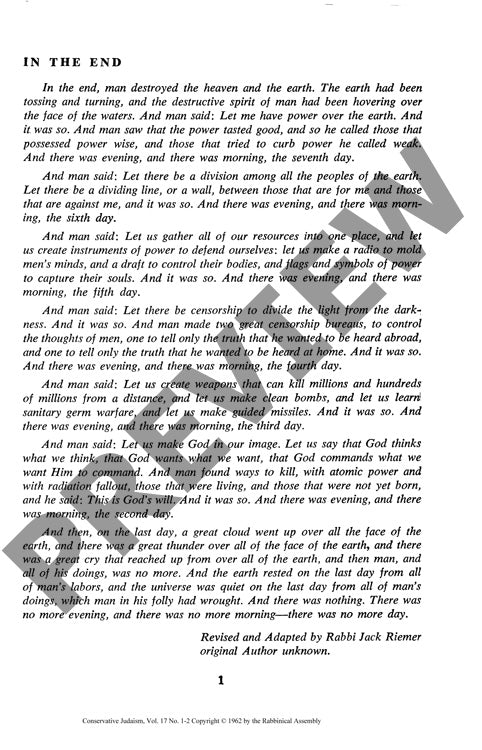In the End Revised and Adapted
Couldn't load pickup availability
This literary work presents a satirical reinterpretation of the biblical creation narrative, inverting the Genesis account to depict humanity's systematic destruction of the world. The methodology employs a mirror structure that parallels the seven days of creation with seven days of destruction, utilizing biblical language and cadence to deliver social critique. The text chronicles humanity's pursuit of power through division, propaganda, censorship, and ultimately weapons of mass destruction, culminating in complete annihilation. Key findings reveal the author's condemnation of Cold War-era militarization, political manipulation, and the appropriation of religious authority for destructive purposes. The work systematically addresses themes of environmental destruction, social division, media manipulation, censorship, nuclear warfare, and the perversion of religious doctrine. The narrative structure moves chronologically backward through the days, building toward an apocalyptic conclusion where human civilization destroys itself and the earth. The piece, published in Conservative Judaism in 1962, reflects contemporary anxieties about nuclear war and totalitarian control during the height of Cold War tensions. The work serves as both theological commentary and political critique, demonstrating how sacred texts can be reimagined to address modern moral and existential concerns.

More Information
-
Physical Description
-
Publication Information
Published 1962
ISBN
-
Publication Credits
Jack Riemer

